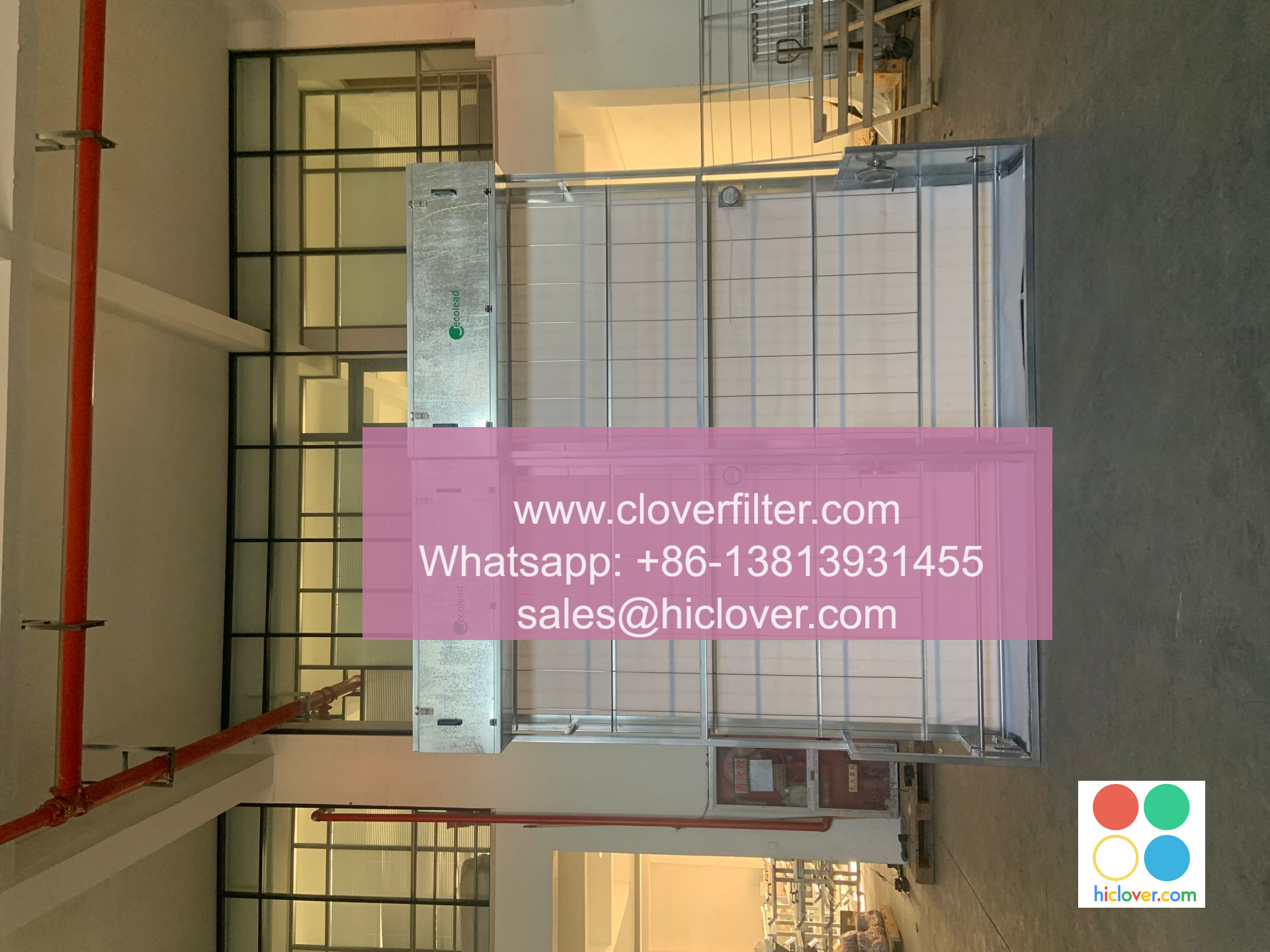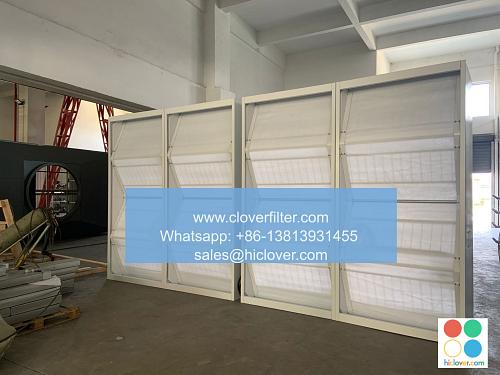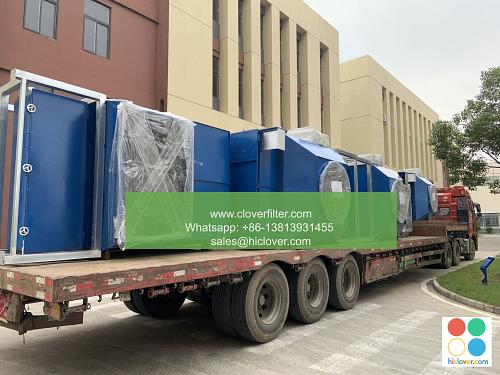Enhancing Air Filtration Efficiency on Newfoundland Offshore Oil Platforms with Automatic Roll Air Filters

Offshore oil platforms, particularly those located in harsh environments like the ones found off the coast of Newfoundland, face significant challenges in maintaining air quality and reducing maintenance costs. The rugged marine atmosphere, with its high humidity, salt content, and frequent storms, puts a strain on the air filtration systems that are crucial for the operation of sensitive equipment and the health of personnel. Traditional air filtration methods often fall short in such conditions, leading to increased downtime and higher maintenance expenses. To address these challenges, the integration of automatic roll air filters has emerged as a promising solution.
Automatic roll air filters are designed to provide continuous, uninterrupted air filtration by automatically advancing a new filter media as the old one becomes saturated with contaminants. This mechanism ensures that the air quality remains consistently high without the need for manual intervention, which is particularly advantageous in remote or hard-to-reach locations such as offshore platforms. By minimizing the periods of reduced air filtration efficiency that occur when filters need to be replaced, these systems help maintain optimal air quality and reduce the risk of equipment failure due to dust and moisture.
One of the primary benefits of using automatic roll air filters on Newfoundland offshore oil platforms is their ability to handle the high levels of humidity and moisture present in the marine environment. Unlike traditional filters that can become quickly saturated and less effective in such conditions, automatic roll air filters can maintain their efficiency, ensuring that the air entering the platform’s systems and living quarters remains clean and dry. This not only protects sensitive electronic and mechanical equipment from corrosion and damage but also creates a healthier environment for workers, reducing the risk of respiratory issues and other health problems associated with poor air quality.
In addition to enhancing air quality, the adoption of automatic roll air filters can lead to significant cost savings. By extending the periods between filter replacements and reducing the need for frequent manual checks and maintenance, these systems can lower operational expenses. Furthermore, the reduction in equipment downtime and the prolonged lifespan of machinery due to better air quality can lead to substantial savings over time. This is crucial for offshore oil platforms, where maintenance and repair operations are often complex and costly due to their remote locations and the harsh environment.
The implementation of automatic roll air filters also aligns with the industry’s move towards more sustainable and environmentally friendly practices. By reducing the amount of waste generated from used filters and minimizing the energy required for air filtration, these systems contribute to a more sustainable operation of offshore oil platforms. Moreover, the improved air quality and reduced maintenance needs can lead to decreased emissions from machinery and generator use, further supporting environmental stewardship.
Despite the advantages of automatic roll air filters, their integration into existing systems on offshore oil platforms requires careful planning and execution. it is essential to consider factors such as the filter’s compatibility with the platform’s current air handling systems, the space available for installation, and the training needs of maintenance personnel. Addressing these considerations upfront can ensure a smooth transition and maximize the benefits of adopting automatic roll air filters.
Conclusion
The use of automatic roll air filters on Newfoundland offshore oil platforms presents a significant opportunity for enhancing air filtration efficiency, reducing maintenance costs, and promoting a healthier and more sustainable operating environment. By addressing the unique challenges posed by the marine atmosphere and leveraging the advantages of continuous, high-efficiency air filtration, these systems can play a critical role in the reliable and environmentally responsible operation of offshore oil platforms. As the industry continues to evolve and seek out innovative solutions to longstanding challenges, the adoption of automatic roll air filters is likely to become an increasingly important strategy for achieving these goals.
FAQs
Q: What are the main benefits of using automatic roll air filters on offshore oil platforms?
A: The main benefits include enhanced air filtration efficiency, reduced maintenance needs, cost savings, and a healthier environment for workers.
Q: How do automatic roll air filters handle high humidity and moisture?
A: These filters are designed to maintain their efficiency in high humidity and moisture conditions, ensuring consistent air quality without becoming quickly saturated like traditional filters.
Q: Can automatic roll air filters be integrated into existing air handling systems on offshore platforms?
A: Yes, but it requires careful planning to ensure compatibility, space availability, and appropriate training for maintenance personnel.
Q: Do automatic roll air filters have environmental benefits?
A: Yes, they contribute to more sustainable operations by reducing waste, minimizing energy use, and potentially decreasing emissions from machinery and generators.


